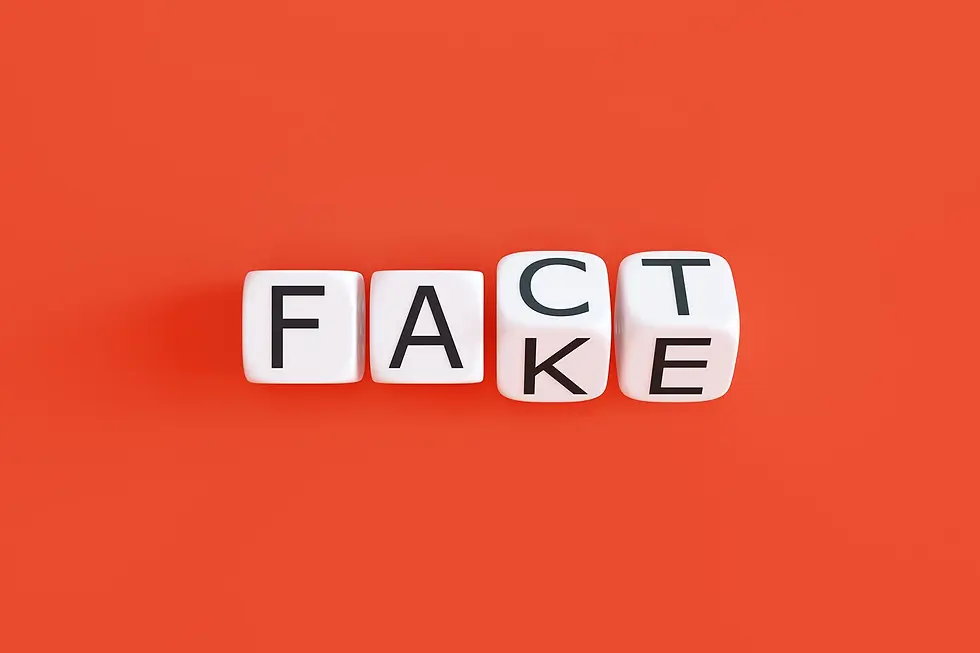Misinformation and Fake News
- Kathryn Ksiazek

- Oct 29, 2022
- 2 min read

In “Mobile and Social Media Journalism: A Practical Guide for Multimedia Journalism,” Anthony Adornato provides three definitions of “fake news.” The definition taken from Macmillan Dictionary is: A story that is presented as being a genuine item of news but is in fact not true and is intended to deceive people. Personally, I think this definition is most accurate to what most people think of when they think of fake news.
As Adornato stated on page 311 of his book, “fake news is profitable.” Companies like Google and Facebook don’t have much reason to try to get rid of fake news because it is what’s bringing in the money that allows the sites to keep running. If you ask me, this simply comes down to fighting corruption. We cannot allow companies like these to benefit from fake news with users like us as the casualties. It’s important to report what we believe to be fake news and not give up until the misinformation is taken down. That way, we know we are at least putting in the effort to stop the spread of fake news. As for these companies, there’s not much the average person can do to truly stop them, but that’s where the role of the journalist comes in.
As journalists, our job doesn’t stop once we post a story, we also need to make sure that the information we put out into the world is accurate and stays accurate. On page 312, Adornato says, “Educating the public about the fundamental role of journalism is one step the industry should take to fight fake news. Such efforts must include how journalists do their work. Journalists ought to do a better job of explaining the process of reporting—the routines and norms associated with fact-checking, verifying, and the like. That's where social media comes into play. It's a platform where we have an opportunity to lift the veil on our reporting processes, which, by no fault of their own, is not generally understood by the public.” Our jobs as journalists are to combat misinformation and make our reporting process clear to readers. We are there to hold people accountable and make sure that readers don’t base their opinions and beliefs on “facts” that are completely inaccurate. That way, we protect the reputability of news and
journalists.


Comments